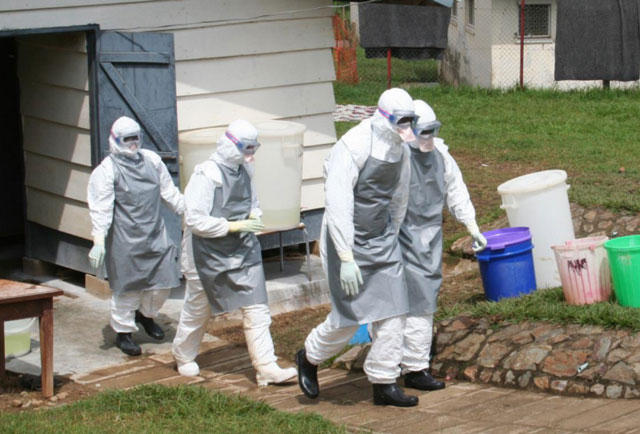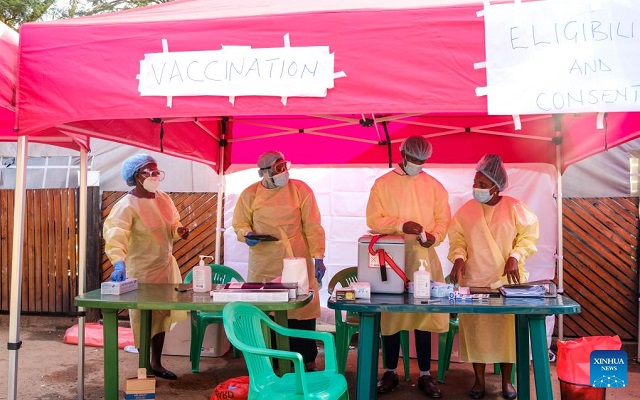
Kampala, Uganda | THE INDEPENDENT & XINHUA | The World Health Organization ( WHO) is sending an additional $2 million to help Uganda tackle the Sudan Ebola Virus Disease outbreak that was confirmed on January 30.
“To further support Uganda‘s response to the Ebola outbreak, I am releasing an additional $2 million from the WHO Contingency Fund for Emergencies. Our teams are supporting surveillance, laboratories, logistics, infection prevention and control in hospitals, treatment centres and research,” said the Director-General of the World Health Organization, Tedros Adhanom Ghebreyesus.
Last month, WHO allocated $1 million (sh3.7 billion) and hailed Uganda for their quick response.
“We welcome the prompt declaration of this outbreak, and as a comprehensive response is being established, we are supporting the government and partners to scale up measures to quickly identify cases, isolate and provide care, curb the spread of the virus and protect the population,” said Dr Matshidiso Moeti, WHO Regional Director for Africa. “Uganda’s robust expertise in responding to public health emergencies will be crucial in ending this outbreak effectively.”
There have been eight previous outbreaks of the Sudan virus disease, with five occurring in Uganda and three in Sudan. Uganda last reported an outbreak of Sudan virus disease in 2022.
“Banking on the existing expertise, we are accelerating all efforts, including expertise, resources and tools to save lives and bring the outbreak to a halt swiftly,” said Dr Kasonde Mwinga, WHO Representative in Uganda.
Sudan virus disease is a severe, often fatal illness affecting humans and other primates that is due to Orthoebolavirus Sudanese (Sudan virus), a viral species belonging to the same genus as the virus causing Ebola virus disease. Case fatality rates of Sudan virus disease have varied from 41% to 100% in past outbreaks.
Uganda has so far recorded six new Ebola cases, bringing the total number of laboratory-confirmed infections to nine, including one death, the Ministry of Health said on Monday.
Seven patients are currently receiving treatment at Mulago National Referral Hospital in Kampala, while one patient is being treated at Mbale Regional Referral Hospital in the eastern part of the country, said Charles Olaro, director general of health services at the Ministry of Health, in a statement.
“In response to the outbreak, the Ministry of Health has placed 265 contacts under quarantine and implemented strict follow-up measures,” Olaro said.
Uganda declared an Ebola outbreak on Jan. 30 after a 32-year-old nurse died of the disease.
“To contain the spread of the virus, the ministry has intensified surveillance efforts, enhanced public health risk communication, and strengthened community engagement,” Olaro added.
The Ministry of Health has urged the public to remain calm as it ramps up preventive measures and reaffirms its commitment to protecting the population from Ebola.
“The Ministry of Health reassures the public that the situation is under control and that the country remains safe, with no travel restrictions in place,” Olaro said.
“We urge the public to remain vigilant and report anyone exhibiting Ebola symptoms to the nearest health facility or contact the Ministry of Health,” he added.
Vaccination starts, WHO hails Uganda

The WHO early this month donated 2,160 doses of the trial vaccine to Uganda, that is now being administered.
In a statement posted on its website late Monday, the WHO said the trial, which began with contacts of the index Ebola case in the country, aims to assess the clinical efficacy of a candidate vaccine against the Sudan strain of the Ebola virus.
According to the UN agency, this is the first-ever vaccine trial for the Sudan strain of Ebola.
It noted that principal investigators from Uganda’s Makerere University and the state-run Uganda Virus Research Institute (UVRI), with support from the WHO and other partners, worked to prepare the trial within four days at Mulago National Referral Hospital in Kampala, the capital of Uganda, following the outbreak’s confirmation on Jan. 30.
“This is a critical achievement toward better pandemic preparedness and saving lives when outbreaks occur,” said WHO Director-General Tedros Adhanom Ghebreyesus, as quoted in the statement.
This is possible because of the dedication of Uganda’s health workers, the involvement of local communities, the Ministry of Health of Uganda, Makerere University, and UVRI, as well as research efforts led by the WHO involving hundreds of scientists, he added.
There are no approved treatments or vaccines for the Sudan strain of Ebola, but early initiation of supportive care has been shown to significantly reduce mortality, according to the WHO.
 The Independent Uganda: You get the Truth we Pay the Price
The Independent Uganda: You get the Truth we Pay the Price




Can they also share how it has been spent
Can they also provide accountability on how the money will be spent or was spent